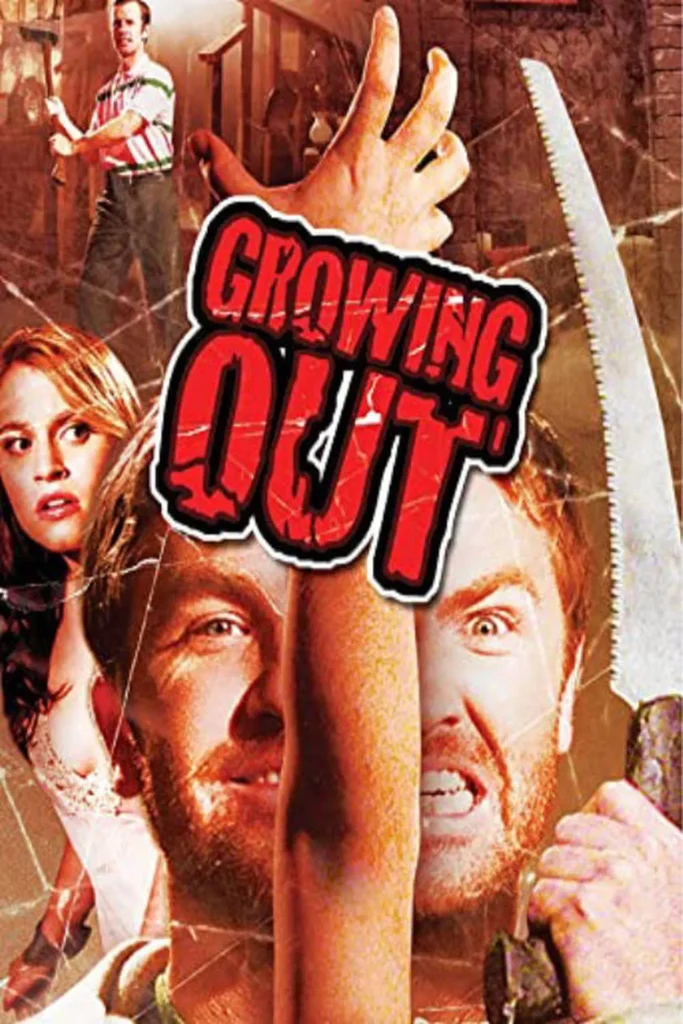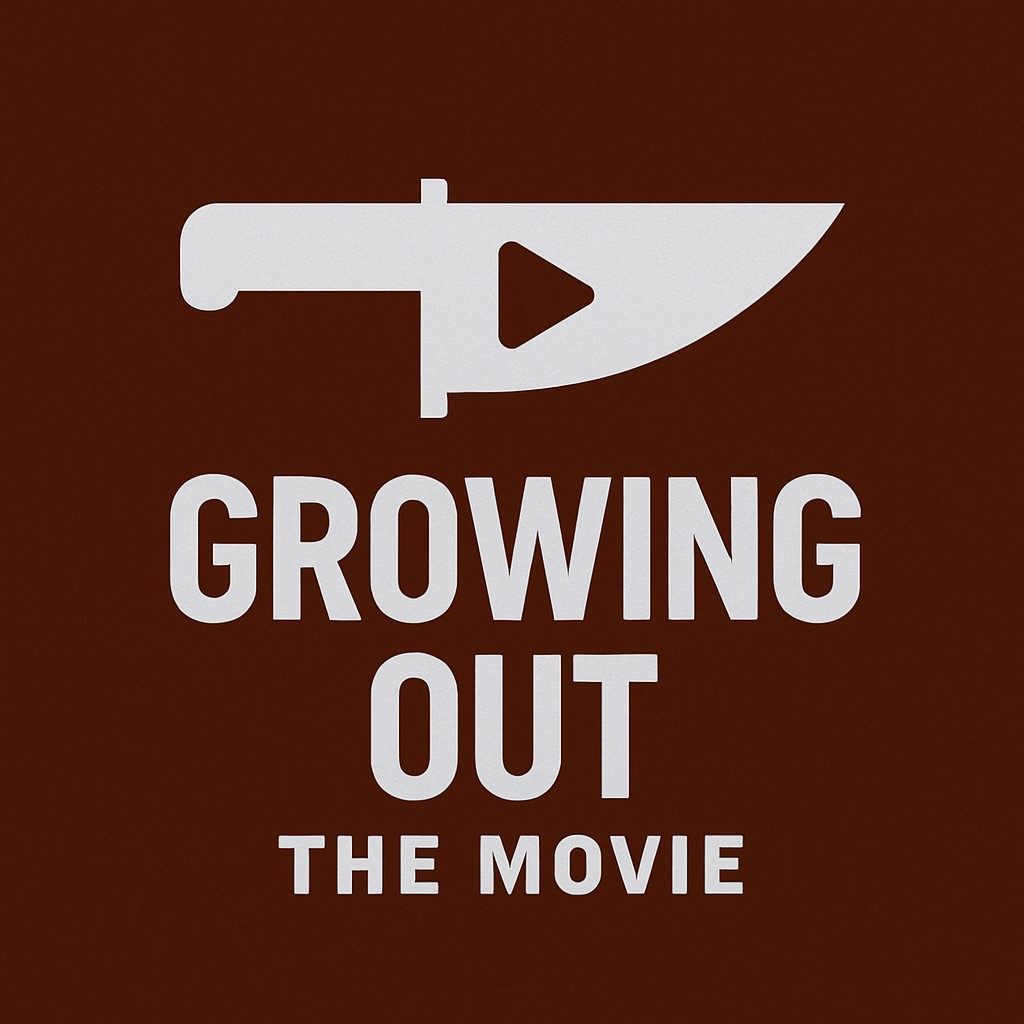
Graham Ratliff’s 2009 feature, “Growing Out,” presents a curious blend of comedy, horror, and musical elements within the framework of an independent production. This review aims to dissect the film’s various facets, from its genesis to its reception, offering a comprehensive analysis for cinephiles and researchers alike. It will explore the narrative’s intricacies, the characters’ roles within the story, the film’s visual presentation, and its performance in the critical and commercial spheres.
Production Details
The independent spirit of “Growing Out” is evident from its production details. Characterized as a “low budget independent movie” , the film likely navigated the typical constraints and creative liberties associated with productions outside the major studio system. This status often implies a more personal vision from the filmmakers, potentially leading to unconventional storytelling and stylistic choices. The creative force behind the narrative appears to be Garett Ratliff, credited as the writer. Given that Graham Ratliff directed the film, it is plausible that both individuals collaborated closely, suggesting a unified authorial vision guiding the project. Principal photography for “Growing Out” took place at Warren Sound Stage, located within Biola University in La Mirada, California, USA. The involvement of a university setting as a filming location might indicate a connection to an educational film program, further underscoring the film’s independent roots and potentially involving a crew of emerging filmmakers driven by enthusiasm and fresh perspectives.
Plot Synopsis
The narrative of “Growing Out” centers on Tom (Michael Hampton), a struggling singer-songwriter whose musical aspirations have yet to find fruition. Seeking a change of scenery and a source of income, Tom takes on the role of caretaker for an old mansion. While tending to the property, he makes an unusual discovery in the basement: a human hand inexplicably growing out of the concrete floor. Over time, this strange appendage develops into an arm, and eventually, a head sprouts, leading to the emergence of a being Tom names Archie (Ryan Sterling). Archie quickly forms a bond with Tom, evolving into a friend and confidant, even offering advice to the hapless musician. Amidst this bizarre situation, Tom finds himself drawn into a romantic entanglement with Veronica (Devon Iott), the enigmatic girlfriend of his neighbor, Philip (Chase Hemphill). Their secret relationship unfolds against the backdrop of Tom’s increasingly strange living situation with Archie, creating a complex web of interpersonal dynamics. As the film progresses, the initial quirky premise gradually shifts towards darker territory, culminating in horror elements. One account suggests a jarring turn in the finale, involving a character descending into madness and resorting to violence against others. The film’s narrative structure and pacing have been noted as somewhat languid, with some viewers finding the progression of events to be slow. This measured pace might contribute to the film’s overall atmosphere, allowing the audience to dwell on the unfolding oddities and character interactions.
Themes and Narrative Elements
Potential thematic elements within “Growing Out” include the exploration of isolation, as Tom grapples with his lack of musical success and his peculiar living circumstances. The unconventional relationships, particularly the bond between Tom and Archie and the illicit affair with Veronica, also stand out. Furthermore, the film blurs the lines between reality and the bizarre, inviting viewers to question the nature of the events unfolding on screen. The attempt to fuse romance, comedy, and horror may result in a somewhat uneven tone, potentially challenging the audience’s expectations for each genre. The character of Archie, the individual growing from the basement floor, appears to be a central yet somewhat thematically ambiguous element. Rather than driving the plot in a conventional sense, Archie’s presence might serve as a metaphor for Tom’s personal evolution or an external representation of his internal state. Finally, the film’s musical component, with aspiring singer-songwriter Tom at its core, is an unusual addition to a horror-comedy. The integration of musical numbers and the nature of the music itself (described as unmemorable mid-tempo ballads ) are crucial aspects in understanding the film’s unique identity.
Character Analysis
The characters in “Growing Out” play distinct roles in the film’s unusual narrative. Tom (Michael Hampton) is portrayed as a struggling songwriter, seemingly down on his luck and somewhat passive in the face of the bizarre events he encounters. His initial reaction to finding a human hand growing in his basement and his subsequent friendship with Archie highlight his character’s adaptability or perhaps his detachment from conventional reality. Archie (Ryan Sterling), the physical embodiment of the film’s title, develops from a disembodied hand to a complete person, forming a significant relationship with Tom. Serving as a confidant and advisor, Archie’s character may represent an aspect of Tom’s psyche or a more surreal element within the story. Veronica (Devon Iott) is the object of Tom’s romantic interest, adding a layer of complexity through her connection to Philip. Her mysterious nature and the clandestine affair with Tom introduce elements of tension and potential conflict. Philip (Chase Hemphill), the neighbor and Veronica’s boyfriend, occupies the role of the potential antagonist or at least a source of conflict in the romantic subplot. One review hints at him being weird and abusive , which adds a darker dimension to his relationship with Veronica and her attraction to Tom. The main cast, as identified across multiple sources, includes:
| Character Name | Actor Name |
|---|---|
| Tom | Michael Hampton |
| Archie | Ryan Sterling |
| Veronica | Devon Iott |
| Philip | Chase Hemphill |
| Vernon | Ben Bowden |
| Man In Black | Davis Jaye |
| Manager | Bill Devlin |
| Young Man | Eric Toms |
| Young Woman | Stephanie Skewes |
Tom’s profession as a struggling songwriter could be interpreted as a metaphor for his own journey of “growing out” of his stagnant phase in life. His interactions with the increasingly sentient Archie might symbolize his coming to terms with unconventional aspects of himself or his life circumstances. The central relationships, particularly the love triangle and the unusual friendship, drive the film’s narrative and contribute to its blend of genres.
Cinematography
Information regarding the specific cinematography of “Growing Out” is limited in the provided material. While the film’s director is listed , details about the visual style, camera work, or overall aesthetic are not readily available. Given the film’s independent nature and low budget, it is plausible that the cinematography adopted a more minimalist or practical approach. The visual presentation likely aimed to support the film’s genre-bending narrative, potentially utilizing darker tones or unconventional framing to enhance the horror elements, while employing a more naturalistic style for the romantic and comedic aspects. The contrast between the ordinary setting of Tom’s life and the extraordinary events, such as Archie’s growth, would likely be a key visual theme. Furthermore, the “grotesque Southern Gothic tone” mentioned in one review suggests that the visual style might have incorporated elements of decay, the unsettling atmosphere of the old mansion, and perhaps a muted or dark color palette to contribute to this specific mood.
Critical Reception
Critical reception for “Growing Out” appears to have been mixed, with some notable criticisms regarding its plot, pacing, and the somewhat uneasy blend of genres. One review on IMDb summarizes the overall sentiment as such. Bloody Good Horror offered a particularly critical perspective, describing the film as a tedious and forced effort that masquerades as a horror movie but is essentially a quirky rom-com with tacked-on horror elements. The unmemorable nature of the musical numbers was also highlighted as a weakness. Another IMDb user review echoed the sentiment of a slow pace and a lack of clear direction, noting bizarre character decisions that lacked explanation. The featured user review on IMDb gave the film a 4 out of 10, criticizing its snail’s pace and the absence of a compelling narrative direction or purpose. The user expressed confusion regarding the significance of the “growth” element and the mysterious aunt mentioned in the plot. The average rating on IMDb is 3.8 out of 10. On TMDB, the user rating is slightly higher at 5.6 out of 10. Information regarding the film’s rating on Rotten Tomatoes was not available within the provided research material.
| Platform | Rating |
|---|---|
| IMDb | 3.8/10 |
| TMDB | 5.6/10 |
| Rotten Tomatoes |
The generally low ratings and critical comments suggest that “Growing Out” did not strongly resonate with either critics or a broad audience. The narrative inconsistencies, pacing issues, and the perceived mismatch between the film’s marketing as horror and its actual content seem to be the primary points of contention.
Box Office Performance
Information regarding the box office performance of “Growing Out” (2009) is scarce within the provided snippets. However, IMDb estimates the film’s budget to be $150,000. Without concrete data on its gross earnings, it is challenging to definitively assess its financial success. Given its independent nature and the mixed to negative critical reception, it is likely that the film had a limited theatrical release. Its availability on DVD suggests that home video might have been its primary distribution channel. If the film’s box office earnings were significantly below its estimated $150,000 budget, it would be considered a financial underperformer. The limited reach often experienced by independent films likely played a role in its overall box office potential.
Conclusion
From the perspective of a film critic, “Growing Out” (2009) presents an intriguing premise that unfortunately struggles in its execution. The attempt to seamlessly blend comedy, horror, and musical elements results in a tonally inconsistent and narratively disjointed experience. While the bizarre concept of a human growing from a basement floor offers a unique starting point, the film fails to fully capitalize on its potential, leaving many plot threads underdeveloped and the significance of key elements unclear. The unmemorable musical numbers further dilute the film’s already scattered focus. Despite some moments of potential originality and the evident effort from the filmmakers, “Growing Out” ultimately suffers from slow pacing and a lack of clear direction, hindering its ability to engage viewers effectively. The marketing of the film as horror appears to be a misstep, potentially alienating its core audience by setting false expectations. At its heart, “Growing Out” seems to lean more towards a quirky, low-budget romantic comedy with surreal undertones, but the forced horror elements and the uneven narrative prevent it from fully realizing its artistic vision. While the film might hold a certain appeal for those seeking out truly unconventional independent cinema, its flaws ultimately outweigh its merits, making it a difficult recommendation for a wider audience.
